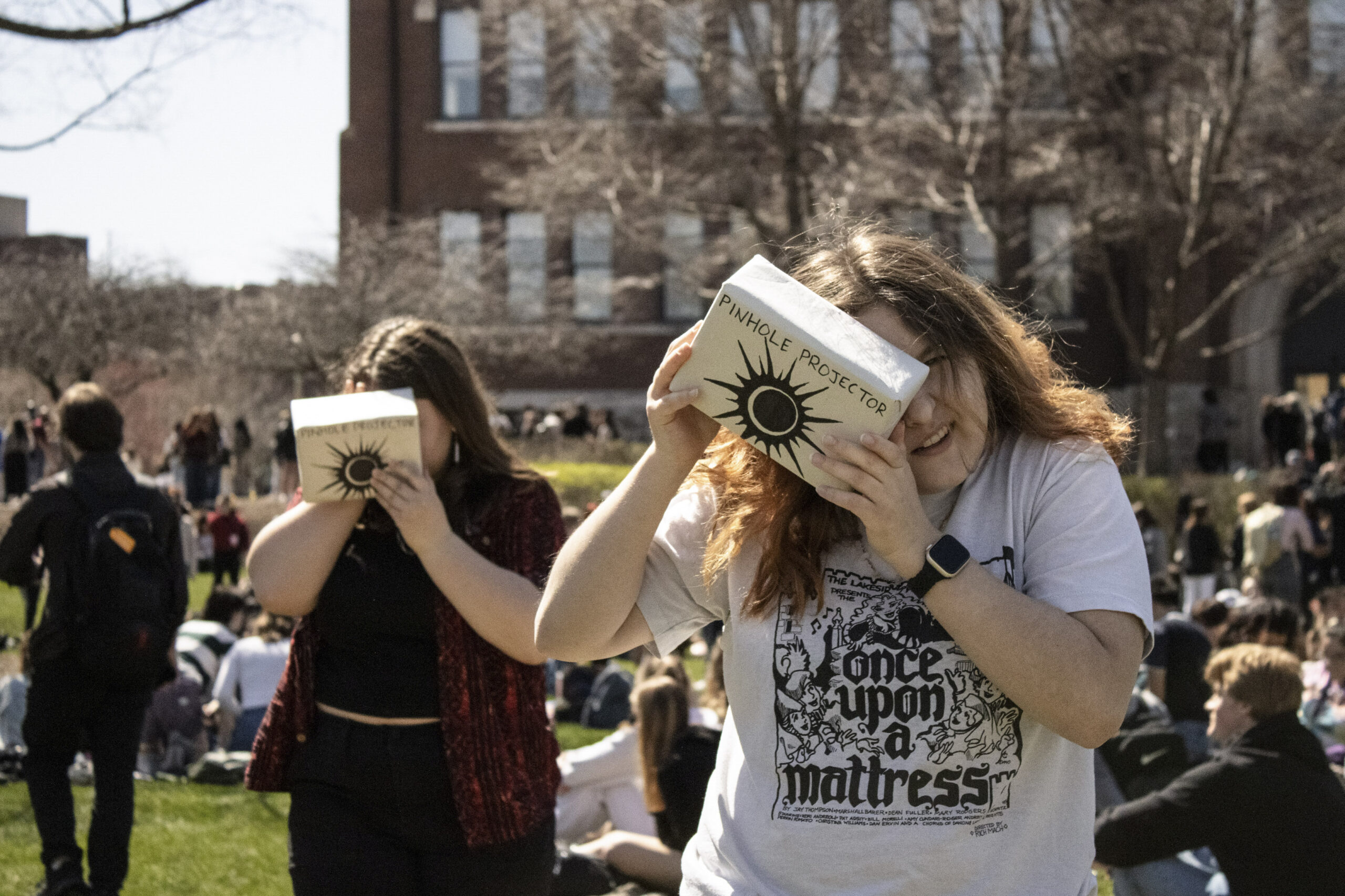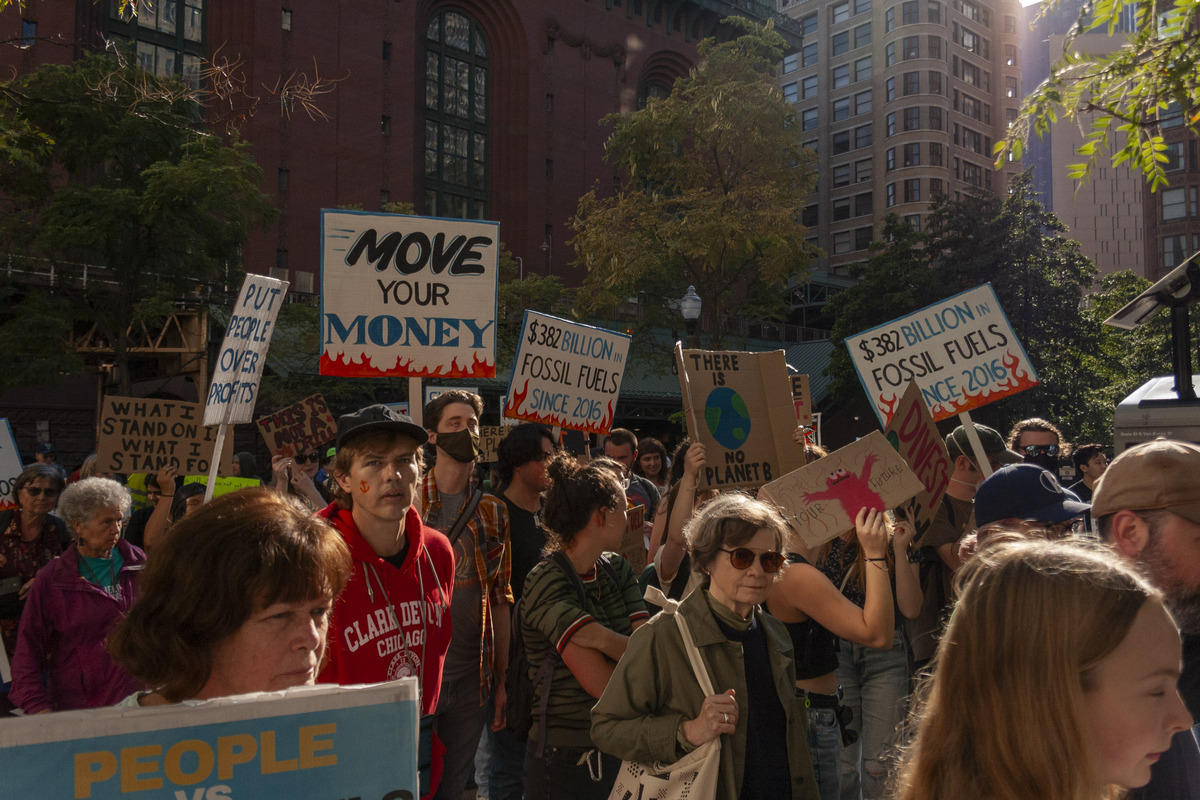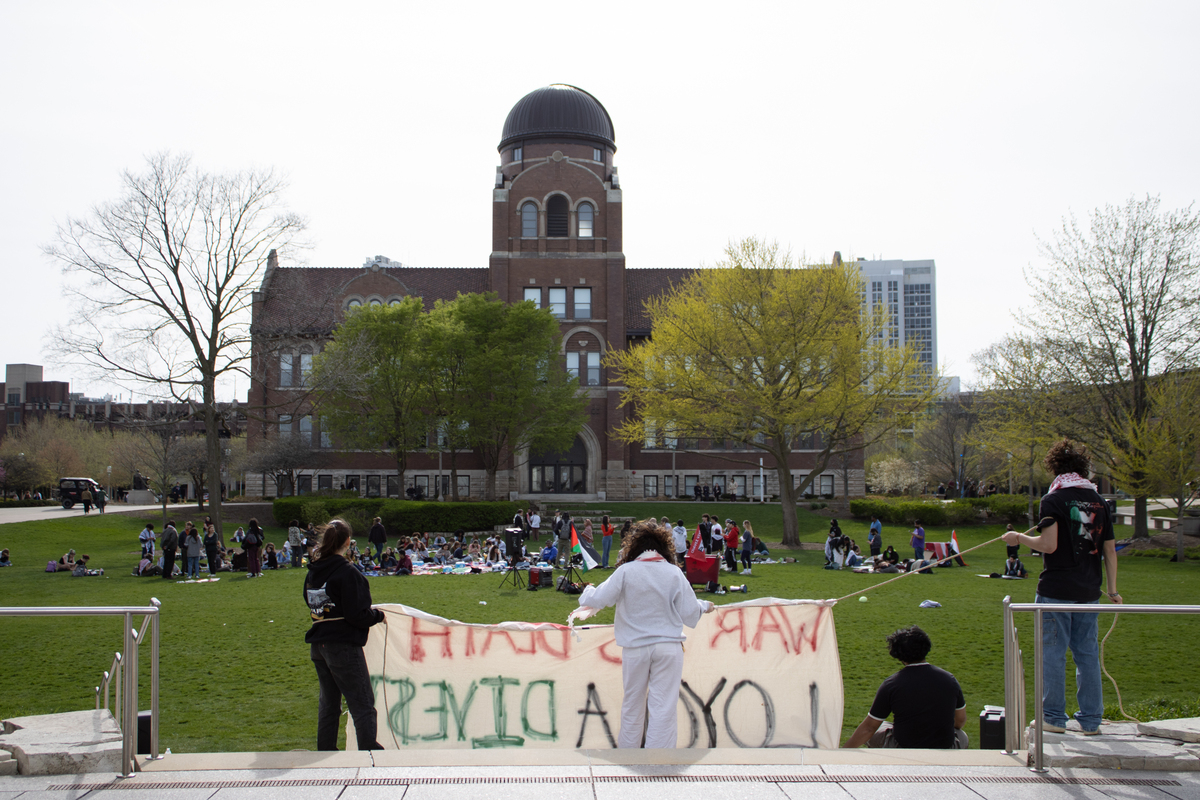Loyola’s Center for Black Student Excellence hosted a screening and talk-back of Jordan Peele’s “Nope” as a part of their Black History Month Programming.
Center for Black Student Excellence Showcases Black Storytelling on the Big Screen

Seated in the popcorn-scented aisles of Damen Cinema on a Thursday afternoon, students did the unexpected — voluntarily attending a lecture outside of class.
This wasn’t just any lecture, though — it was a screening and discussion of Jordan Peele’s 2022 film “Nope.” The Feb. 8 event, hosted by the Center for Black Student Excellence, or CBSE, was part of the group’s broader efforts to engage during Black History Month.
Black History Month, which takes place throughout February, celebrates Black Americans’ accomplishments, contributions and culture. The CBSE, founded in June 2022, strives to uplift the Black community at Loyola by providing resources for students, according to its website.
“Nope” centers on Daniel Kaluuya as Otis “OJ” Haywood Jr. and Keke Palmer as Emerald “Em” Haywood, a brother-sister duo running a unique family business — horse taming for Hollywood movies. When they discover a mysterious, man-eating alien in the sky above their farm, they team up with electronic store cashier Angel Torres, played by Brandon Perea, and auteur director Antlers Holst, played by Michael Wincott.
Many films with Black characters and stories tend to focus on racism, trauma and violence, but “Nope” doesn’t, according to CBSE coordinator Morgan Ransom, a self-proclaimed “film nerd” who graduated in 2022.
“I really wanted to showcase a film that was out of the ordinary and had those complexities and honored Blackness in different ways,” Ransom said. “You have Black farmers, you have animal handlers, you have folks that live in the West, just all of these things that aren’t really in the minds of Black American arcana.”
After screening “Nope” in the Damen cinema, the CBSE joined in collaboration with the Faculty Center for Ignatian Pedagogy to host a student discussion about the film’s symbolism, artistic choices and treatment of race. The discussion was led by Ransom and Justin Wright, the anti-oppressive pedagogies specialist in faculty development for the Faculty Center for Ignatian Pedagogy.
A separate virtual discussion about the film was held the next day for faculty, 29-year-old Wright said. They said that things like film analysis can help educators engage with material in different ways and having a movie with Black characters not centered on slavery, civil rights or segregation was important to show the diversity of Black film.
“We’re just now seeing Black people not just on a screen but on the biggest screens possible,” Wright said.
Although representation is a small step in the larger context of diversity in film, they said it’s still important to have characters Black audiences can relate to, especially young people.
“I grew up reading books where I had to make the characters Black in my head,” Wright said. “Black film is incredibly important because it shows us all the places we can be and exist in.”
Before the discussion, the 24-year-old Ransom said they thought of the film as a fun creature feature, a horror genre specifically focused on monsters. However, they said talking with Wright helped them analyze the film on a deeper level, like seeing the alien as a symbol for white supremacy.
Nola Ibrahim, a fourth-year criminal justice major, said the theme of monopolizing on the spectacle of trauma — as with Steven Yeun’s character Jupiter — stuck out to them the most.
“It’s one thing to watch a movie, but actually diving into and dissecting it for what it is and exploring the themes is very important,” Ibrahim said. “It’s good to rewatch movies so you can understand the themes, seeing themes such as white supremacy and other aspects or historical legacies like colonialism, slavery, et cetera.”
Hollywood’s disregard for Black actors, directors and writers has cost the film industry $10 billion a year, according to Deadline.
An infamous example of this exclusion is the #OscarsSoWhite controversy concerning the lack of Black representation starting at the 2015 Oscars, including snubs of Ava DuVernay’s “Selma” and F. Gary Gray’s “Straight Outta Compton.”
“We should definitely give more platforms to other Black filmmakers,” Ibrahim said. “I think that in Hollywood, we have an issue with platforming new people, new themes, new stories.”
With February being Black History Month, showing a film like “Nope” is important because it goes against stereotypes about Black filmmaking, CBSE program assistant Ash Francis said.
“Black film, in general, it’s like, ‘Oh, it’s too ghetto’ or ‘It’s too comedic,’” Francis said. “This movie’s a bit different from that.”
Francis said the movie was educational and didn’t fall into harmful clichés such as Black men portraying women. This trope, seen for example in some Tyler Perry films, is one of many stereotypes “Nope” rejects, according to The New York Times.
Throughout Black History Month, the CBSE will hold more events, including a reception on Feb. 15 and a student panel about traveling while Black on Feb. 28.
Featured image by Hanna Houser / The Phoenix










